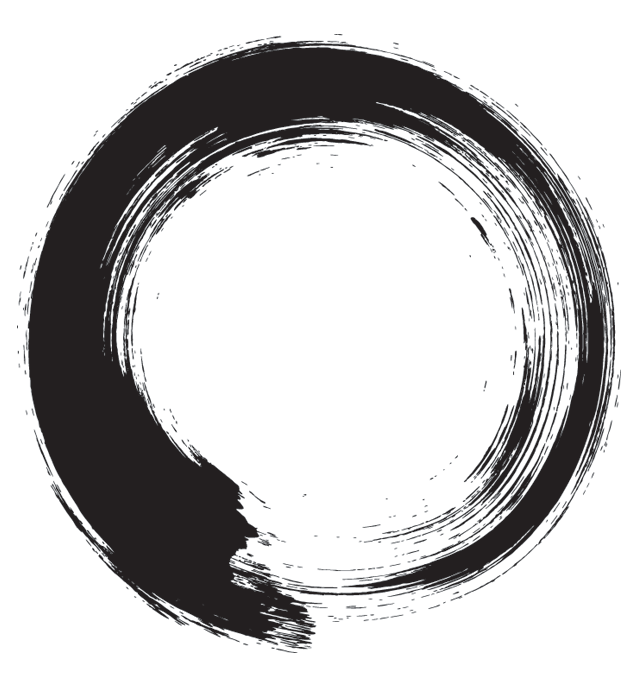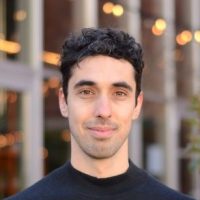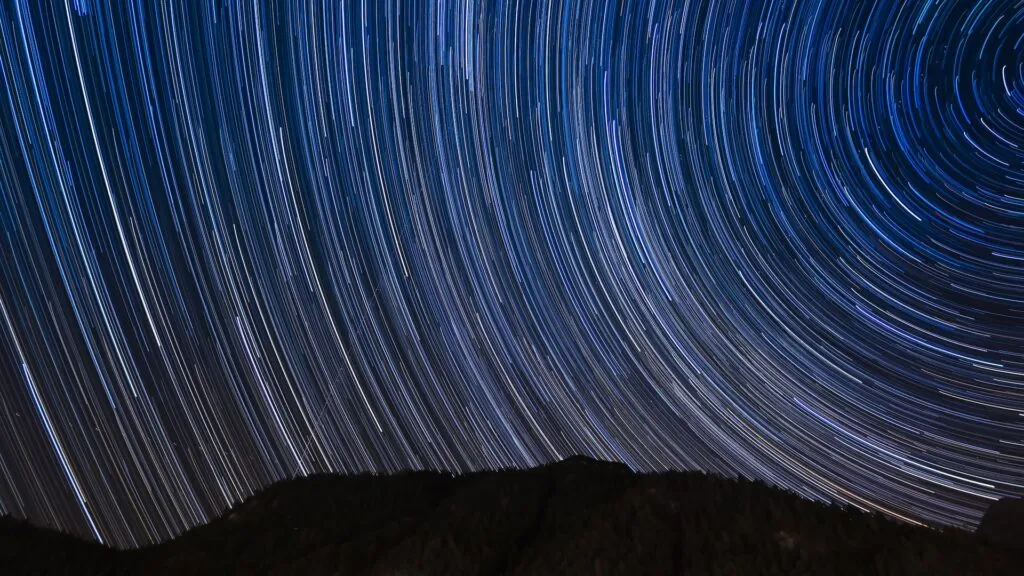8 Perspectives on Deep Inner Work –
The Path for Personal and Professional Growth
The Path for Personal and Professional Growth
Part 8 of 8: Acquiring Wisdom for a Good Life
November 23, 2022
This is part eight of an eight-part series on deep inner work at Evolute Institute. For the other parts check out:
- Article 1: Increasing our inner freedom
- Article 2: Moving into higher mindsets
- Article 3: From disconnection to re-connection & addressing trauma
- Article 4: Healing Psychological Wounding and the Work of Grief
- Article 5: Overcoming Cultural Conditioning
- Article 6: Increasing Psychological Flexibility
- Article 7: Fostering Integration through and beyond psychedelic work
- Article 8: Acquiring Wisdom for a Good Life
“Knowing the place for the first time”
We shall not cease from exploration
And the end of all our exploring
Will be to arrive where we started
And know the place for the first time.
Through the unknown, remembered gate
When the last of earth left to discover
Is that which was the beginning;
At the source of the longest river
The voice of the hidden waterfall
And the children in the apple-tree
Not known, because not looked for
But heard, half-heard, in the stillness
Between two waves of the sea.
—T.S. Eliot

This poem by T.S. Eliot encapsulates what we believe to be a deep truth about our individual (ontogenetic) development: when we grow personally and as soon as we feel safe as children (see article 3 on the importance of the safe haven and secure base), we start exploring the world, and through this also getting to know ourselves. We fall in love, engage in relationships and in productive exchanges with the world (e.g. through work), take over responsibilities for self, others and maybe our own children and grand-children, and continue our exploration of what life has to offer us, what we can offer to life, how to overcome adversity and process suffering, and how far we can go and develop our potential.
Instead of seeing this as a linear development from A to B, we can think of this movement into the world as a means to get to know our true self, our deep sense of purpose. As author and teacher Thomas Hübl often says: our calling is the echo of the arrival.[1] At the end, we meet ourselves and what life wanted to express through us. When we have lived life well, with love, truth and presence as our north stars, we have a satisfying, integrative encounter with the circle of life – symbolized above with the Japanese Enso (ensō) circle. We feel we have “come full circle”, we have realized the essence of life, of what it means to be alive. We have come home to ourselves.
Photo by Todd Quackenbush on Unsplash.
What is the endpoint of all our efforts to grow and develop?
You might ask yourself: if we only come back to ourselves in the end, what is the point of all our efforts to grow, of our striving for development? If we had to condense it into one word, it would be: “wisdom”. But what is wisdom? Thomas Hübl coined a definition that we deeply resonate with: “Wisdom is how much world I can include in the way I live.”[1]
And in this sense it’s maybe not right to think of the enso circle as a 2D circle on the same plane but instead to tilt it and to think of it as an ensō spiral going upwards – we return to the beginning and come full circle but on a higher plane of development, a movement that entails that we have enlarged our inner space (cf. article 2 of this series), that we contain more integrated information (cf. article 7 of this series), or that we “include more world” – and this not on a conceptual level, but in a practical, embodied way of living our lives. When we complete the circle we recognise both the return and the progress.
From our point of view, it also follows that true wisdom as embodied in a way of life is also aligned with the basic principles and truths of life, as they manifest themselves in our perennial philosophies and enduring myths – which are a codified synthesis of the human condition and experience over long time spans – as well as in the best of what science has to offer. It seems that wisdom has to be connected to the transpersonal domain, too, because we have to relate to something bigger than ourselves, i.e. to the mystery of existence, if we want to attribute meaning to life and to live well despite our own mortality and vulnerability (see also article 4 of this series on the work of grief).
Wisdom ultimately implies a more grounded, conscious, aware, loving, aligned way of being in the world and of choosing and surrendering to our deeply held beliefs, values and sense of purpose. And those values and beliefs are not arbitrary but reflect the greater architecture of what is ultimately true about existence, about life.
Photo by Joshua Sukoff on Unsplash.
Love, truth and presence as guiding principles for a good life
We believe – in line with many wisdom traditions – that three fundamental principles can guide us on our journey towards a wise life, a good life: love, truth and presence.
Love wants the best for what or whom is being loved: to protect it, to foster its flourishing and growth. Love can be understood as the desire to make things whole. Love is the antidote to entropy, suffering, fragmentation, loneliness, death and despair. Love means courage, it lets us become courageous in the true sense of the word (courage from French “cœur”, meaning ”heart”) by daring to open up to the present moment and to show the world who we are.
Truth can be considered the companion of love in life[2] – what is true is real and what is real gives us ontological security. It is something we can rely on, something we can trust, despite the fact that there will be always things that we will never know. However, truth cannot be given to us by someone else, we have to discover it ourselves. In the words of Jiddu Krishnamurti, “truth is a pathless land”. No priest, dogma, institution, abstract idea, philosophical or psychological concept can reveal truth to us. It is through the mirror of relationship with life that we can start feeling what truth means to us. It demands from us an openness and presence to the moment, which brings us to the next point.
Presence is the nurturing ground from which love can become more felt and from where it can grow, and where truth is to be found. Presence is our capacity of just being, leaning fully into the present moment, allowing life flow through us and thus be changed by it (it’s the domain of the right hemisphere, cf. article 5 of this series). It requires a deep humility from us, leaving aside all that we think we know about ourselves (our self-stories) and about the rest of the world (our prejudices and opinions about reality) in order to see the world again with beginner’s eyes. In this sense, truth is not a piece of knowledge that can be forever acquired, and love is not a quality that can be artificially produced, but both can only be experienced and felt as we center ourselves again and again in the present moment. Then, fully present, we can awaken to what is true and dear to us.
Thus, we believe the human journey is to ”perfect our love” (Jack Kornfield) and learn what is true about life through wholehearted presence. And consequently, to step into our responsibility, i.e. our response-ability: our ability to respond.
As individuals and as leaders, our questions become the following:
- How can I bring my personal gift, my way of loving, to the world?
- In what ways do I need to grow and develop to best serve what I love, so that I can become more response-able (able to respond) and caring in the face of the world’s challenges and wonders?
Photo by Greg Rakozy on Unsplash.
“Life as me” – Encountering the Divine
The Conscious Leadership Group[3] speaks of a developmental movement from “life happens to me” (I am a victim), via “life happens by me” (I make life happen, I take responsibility) to “life through me” – in a movement of surrendering I start cooperating with life, I allow for flow, wonder and awe, and my guiding question becomes “what wants to manifest through me?” – this is the movement into acting out of full presence. Beyond that, there is the final possible movement towards oneness, “life AS me” – place of absolute peace, spaciousness and inner freedom. It is a place that few people in the modern world know, but knowing it – as an actual experience – changes everything.
We believe that experiencing the grace of the sacred, to have an encounter with the divine, to “kiss the eternal” or however you might call it – even if only once –, might be one of the most profound springs of wisdom. As the late Joseph Campbell – the famous scholar on myth and religion – said:
“Eternity isn’t some later time. Eternity isn’t even a long time. Eternity has nothing to do with time. Eternity is that dimension of here and now that all thinking in temporal terms cuts off… the experience of eternity right here and now, in all things, whether thought of as good or as evil, is the function of life.”
— Joseph Campbell
Mystery, what Albert Einstein described as the “most beautiful and profound emotion we can experience”[4], is the personal dimension of the infinite, the experience of pure existence, the eternal in the here and now.
Like anything of weight in life, it has to be experienced to be understood. Simply understanding the word “divine” or “sacred” on a conceptual level is not enough – as a matter of fact it has barely anything to do with the real experience or “felt sense” of it. I can read about other people falling in love all day, but if I can’t experience what it means to feel/sense/be in love, the words stay empty hulls. So we need to have the actual reference experience in our bodymind/consciousness to fully “grasp” these words, and thus also in order to acquire true wisdom.
Some people might be taken aback by the fact that we are talking about the divine here, wondering if it takes us back into “unenlightened”/pre-modern times or move us into the hands of orthodox dogmatic religions. Fear not. Luckily, there is a growing recognition also by non-reductionist science – complexity science, systems theory, evolutionary biology – that the universe is inherently creative, and this recognition of the ceaseless natural creativity in the world could lay the groundwork for a re-interpretation of the divine (and even a new global ethic). The divine can be firmly anchored in our best science and philosophy. Authors like the famous medical doctor, theoretical biologist, and complex systems researcher Prof. Stuart. A. Kauffman even speak of a necessary and possible “re-invention of the sacred” that bridges or merges religion and science in a new synthesis. And that – based on latest scientific research and theory – sees “God” as the creative principle of the universe – which could become an understanding of God or the divine that humans from all cultures and denominations might be able to embrace at some time in the future.[5]
However, for the purpose of this article, suffice it to say that we consider the experience of the divine to be a crucial building block for a wise life, a life lived well. It prevents us from taking ourselves too seriously and from fretting too much about our own mortality. Instead of despairing about getting sick, older, losing our loved ones, and usually slowly perishing ourselves, we can find comfort in bigger things than our every-day self or what our “ego” can conceive of.
Photo by Paul Pastourmatzis on Unsplash.
Leaders learning to dance with the system
On a leadership level, where we have to move from awe and wonder about the mystery of life towards wise being and acting in an ever-changing world, the new call is that we might need to become a little bit like “Taoist sages”. We need to learn to “dance with the system”, as the great synthesiser Tom Morgan writes in his letters[6]. For this, we are invited to reconnect to our own personal genius, our innate creativity. “For a lack of connection with the present moment and with the “sacred” within us lies at the center of our mental and cultural malaise” (see also articles 3 “From disconnection to re-connection” and 5 “Overcoming cultural conditioning” from this series).
The iconic psychologist Carl Jung was frequently asked by his fellowship if humanity would “make it”, given the grave collective challenges at those times. His monosyllabic response always was “If enough people do their inner work.”[7] Similarly, aligned with Tom Morgan, we are convinced that the re-connected, re-balanced, re-aligned individual operating in harmony with herself, others and nature can become the antidote to the most pressing issues that we as individuals and society are facing.
Reaching a critical mass of well-integrated, re-connected, heart-led, visionary yet grounded leaders will have a cascading effect on the whole system.
This our hope, this is our mission, this is Evolute Institute.
Thank you if you read our 8-part series on deep inner work until here. It’s a journey we’re on and we’d like other people to join in, contribute to it, and move together with us towards a new way of thinking, feeling, acting, and being in the world – as leaders in our organisations and professional contexts, but also as human beings. We can all become more aware, more conscious stewards of our ecosystems.
If you liked what you read: check out the other articles of this series:
Article 1: Deep inner work: How to increase inner freedom
Article 2: Deep inner work: Moving into higher mindsets
Article 3: From disconnection to re-connection & addressing trauma
Article 4: Healing Psychological Wounding and the Work of Grief
Article 5: Overcoming Cultural Conditioning
Article 6: Increasing Psychological Flexibility
Article 7: Fostering Integration through and beyond psychedelic work
Interested in joining a group of pioneering entrepreneurs, organisational leaders & decision-makers, change-makers and curious minds on their path of inner growth and development? Curious about the power of altered states of consciousness and the use of psychedelic truffles in a safe and legal setting? Then check out one of our psychedelic leadership retreat programs or schedule an exploratory call. We’re looking forward to determining with you if our programs could be a good fit for you at this point of your journey.

Dr. Dmitrij Achelrod,
co-founder Evolute Institute
Is an Evolute Institute retreat program right for your personal growth journey?
We invite you to schedule a call with us. Together, we can explore any questions or concerns you may have. We can explore whether this program is right for you at this time and ensure you feel confident about and ready to embrace this transformative experience.
“We are here to support your exploration, at your pace, with no expectations.” – Dmitrij Achelrod
Christopher Kabakis
Contributing Authors
Dmitrij Achelrod PhD
Christopher Kabakis
Contributing Authors
Dmitrij Achelrod PhD
Subscribe to the insights newsletter
At most, once every 2 weeks.


Images
Article Cover: Photo by Lyndon Li on Unsplash.
References:
[1] More info on Thomas Hübl and his work: https://thomashuebl.com/.
[2] In a highly interesting conversation with Iain McGilchrist, Jordan B. Peterson points out that the old biblical idea of Logos can also be summarised in these terms: “Truth in language and imagination serving love. The direction of attention towards possibility, oriented towards love, infused by truth, produces the order that is habitable and good.” (cf. https://www.youtube.com/watch?v=f6Vkhov_qx8).
[3] Cf. Jim Dethmer, Diana Chapman, Kaley Klemp: The 15 Commitments of Conscious Leadership: A New Paradigm for Sustainable Success. Dethmer, Chapman & Klemp Publishing.
[4] My Credo (1932) Speech to the German League of Human Rights, Berlin (Autumn 1932); as published in White, M. & Gribbin, J. (1994): Einstein: A Life in Science. Simon & Schuster.
[5] Stuart A Kauffman: Reinventing the Sacred: A New View of Science, Reason, and Religion. Basic Books; Illustrated edition.
[6] See Tom Morgan’s insights in his regular kcp group letters: https://thekcpgroup.com/insights
[7] Johnson, Robert A. (2009): Owning your Own Shadow. HarperOne; Reprint Edition.




